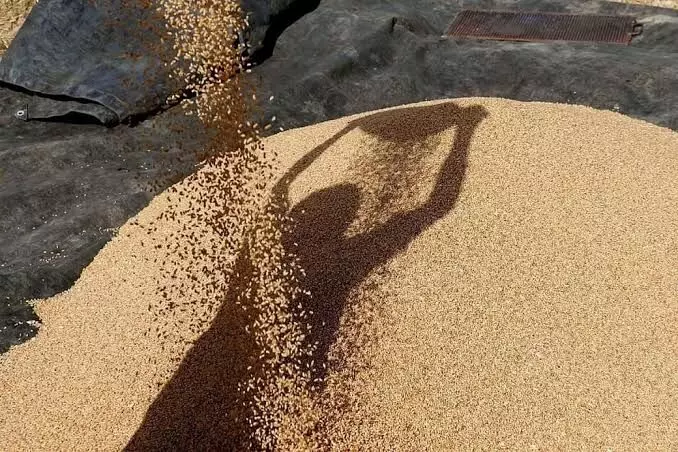
India bans wheat exports to curb surging inflation, ensure domestic supply
text_fieldsNew Delhi: India on Saturday banned wheat exports as part of its efforts to cool down wheat prices in the country, which saw a surge amid rising global wheat demand.
In an order, the government said the move was made in order to "manage the overall food security of the country and to support the needs of the neighbouring and other vulnerable countries".
As per the order, only export shipments for which letters of credit have been issued on or before yesterday's notification will be allowed.
The notification issued by the Directorate General of Foreign Trade (DGFT) added that the government will allow exports on requests from other countries.
Global buyers had been banking on India - the world's second-largest wheat producer after China - for supplies after exports from the Black Sea region dropped since Russia's invasion of Ukraine in late February.
The move to ban wheat exports comes after huge crop loss due to a heatwave in March. The government is also under pressure to rein in inflation that surged to 7.79 percent in April.
Earlier this month, a Reuters report quoted a top official of the Ministry of Consumer Affairs, Food and Public Distribution as saying that India is not looking to curb wheat exports.
"There is no move to curb wheat exports, as the country has sufficient stocks of wheat," Food Secretary Sudhanshu Pandey had then said.
Prime Minister Narendra Modi, during his recent visit to Germany, told the Indian diaspora at an event that farmers of the country "have stepped forward to feed the world" amid a global shortage of wheat. "Whenever humanity is faced with a crisis, India comes up with a solution," he said.
After five consecutive years of record harvests, India cut its wheat output forecast to 105 million tonnes from a February estimate of 111.3 tonnes after the heatwave hit crop yields.





